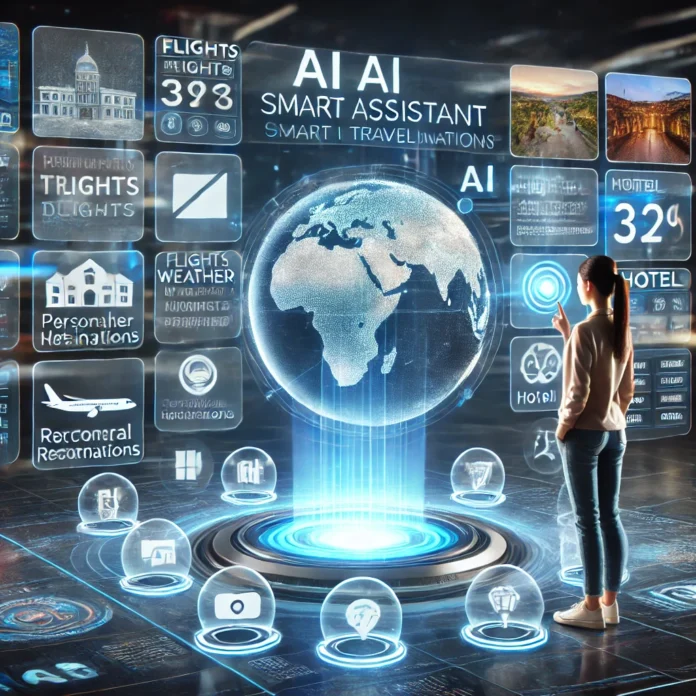Planning a vacation used to be a time-consuming process—comparing flights, searching for the best hotels, creating itineraries, and reading countless reviews. Today, artificial intelligence (AI) is transforming travel planning, making it smarter, faster, and more personalized than ever before. Whether you’re looking for a quick weekend getaway or a meticulously planned international trip, AI-powered tools are simplifying the experience.
How AI is Changing Vacation Planning
AI is reshaping the travel industry in several ways, from predicting airfare fluctuations to curating personalized experiences. Here’s how AI is making vacation planning seamless:
1. Smart Travel Assistants and Chatbots
- AI-powered travel assistants like Google Travel, Kayak, and Hopper can analyze user preferences and suggest flights, accommodations, and activities.
- Chatbots on platforms like Expedia and Skyscanner answer real-time queries and provide instant booking recommendations.
- Some AI assistants, like Mezi and Pana, act as virtual travel concierges, handling everything from reservations to last-minute changes.
2. AI-Powered Flight and Hotel Price Predictions
- Tools like Hopper and Skyscanner use AI to predict airfare and hotel price trends with high accuracy.
- AI algorithms track millions of flight and hotel rates daily and advise travelers on the best time to book.
- These predictive models help travelers save money and avoid last-minute price hikes.
3. Personalized Itineraries Based on Preferences
- AI travel planners, such as Roam Around and TripIt, analyze user behavior and preferences to generate customized itineraries.
- By learning from previous trips, search history, and reviews, AI can recommend destinations, activities, and dining options tailored to individual tastes.
- AI-powered platforms even consider weather forecasts, local events, and cultural experiences when designing itineraries.
4. AI-Enhanced Travel Translation and Navigation
- AI-powered apps like Google Lens and iTranslate allow travelers to instantly translate signs, menus, and conversations.
- AI-driven navigation tools, such as Google Maps and Citymapper, provide real-time updates on traffic, public transport, and walking routes.
- AI-powered AR (Augmented Reality) apps help tourists explore landmarks and hidden gems with interactive guides.
5. Virtual Travel Experiences with AI and AR/VR
- AI and Virtual Reality (VR) are making it possible to preview destinations before booking.
- Platforms like Expedia’s VR tours and Google Earth VR let users explore hotels, tourist attractions, and cities from their homes.
- AI-generated VR simulations help travelers decide where to go based on a virtual experience.
The Future of AI in Travel
The future of AI in vacation planning looks even more exciting:
- Hyper-Personalization: AI will create highly customized travel experiences based on emotions, past trips, and real-time behavior analysis.
- AI-Powered Smart Packing: Tools like PackPoint already help with packing lists, but AI will soon analyze weather conditions and suggest clothing accordingly.
- AI-Based Travel Safety Measures: AI will provide real-time updates on travel safety, including health advisories, crime reports, and emergency alerts.
Conclusion
AI is making travel planning easier, smarter, and more efficient than ever. From booking flights at the best price to curating personalized itineraries, AI is eliminating the stress of vacation planning. As AI continues to evolve, travelers can expect more intuitive, real-time, and immersive travel experiences—making every trip a smooth and unforgettable adventure.





